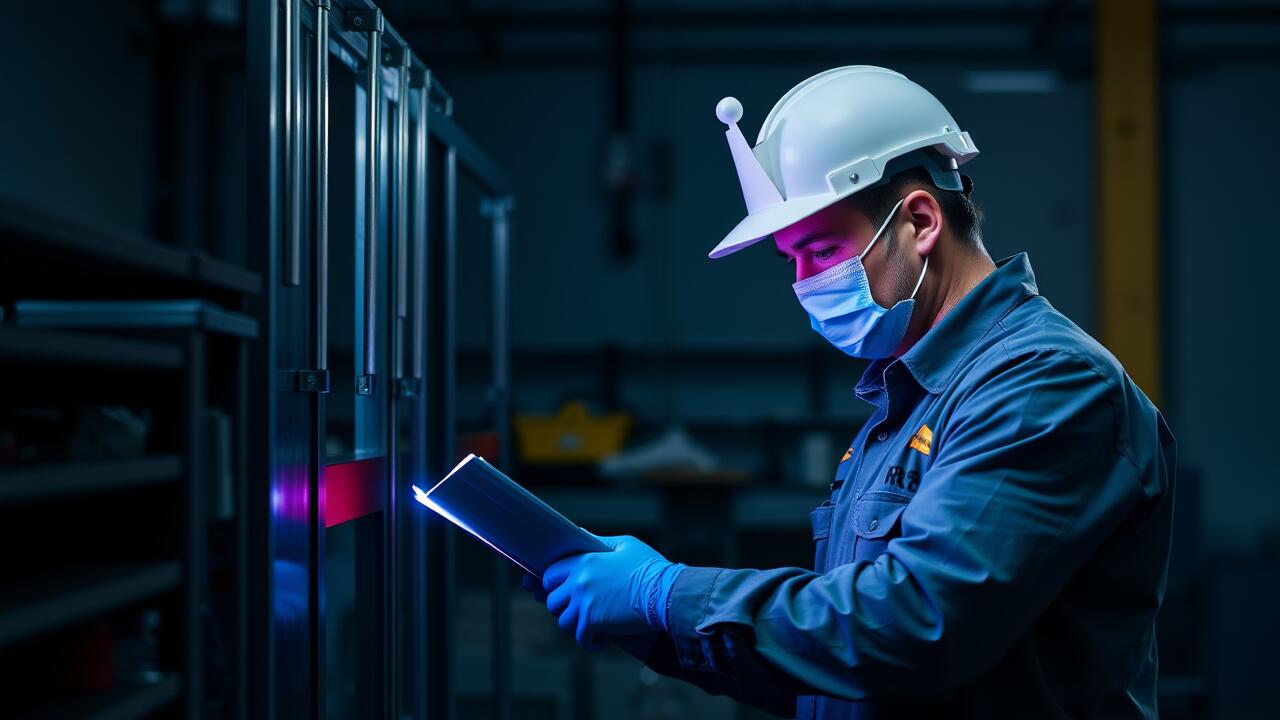
Technology Used in Dental Crown Procedures
Advancements in technology have significantly improved the procedures associated with dental crowns. Digital imaging and 3D scanning enable precise measurements of a patient's teeth, ensuring a better fit for the crown. This technology reduces the reliance on traditional impression moulds, making the process more comfortable for patients. Additionally, computer-aided design and manufacturing (CAD/CAM) systems allow for same-day crowns, streamlining the treatment by producing custom restorations on-site.
The use of high-quality materials has also transformed the way crowns are fabricated. Dental clinics in Bristol now often utilise porcelain and zirconia, which not only mimic the appearance of natural teeth but also enhance durability. These materials are resistant to wear and offer superior strength, making them suitable for a range of dental applications. As clinics adopt innovative technologies, patients can expect higher quality outcomes with their crowns, tailored specifically to their individual needs.
See here for more great tips.
Modern Techniques and Equipment
Advancements in dental technology have revolutionised the way crowns are designed and fitted. CAD/CAM systems allow for precise measurements and the creation of digital models, ensuring that crowns fit seamlessly to a patient's individual dental structure. The use of 3D printing in producing crowns has also gained popularity, enabling quicker manufacturing times and enhanced accuracy, which significantly contributes to patient satisfaction and comfort.
Laser technology has further improved the crown procedure, offering less invasive options for tooth preparation. This minimises discomfort and reduces recovery time for patients. Additionally, many clinics now utilise high-quality materials such as zirconia and porcelain, which not only provide aesthetic appeal but also exhibit exceptional durability. These modern techniques and equipment underscore the commitment of dental practitioners to deliver outstanding results for patients requiring crowns.
Aftercare for Dental Crowns
Aftercare for crowns is an essential aspect of ensuring their longevity and maintaining overall oral health. Patients are often advised to avoid hard or sticky foods during the initial healing phase, as these can dislodge or damage the new restoration. Good oral hygiene practices, including regular brushing and flossing, should be maintained to prevent plaque build-up around the crowns. Regular dental check-ups also play a crucial role in monitoring the condition of the crowns and surrounding teeth.
Sensitivity can occur in the days immediately following the placement of crowns, but this is usually temporary. Over-the-counter pain relief can help alleviate discomfort if needed. Patients should remain vigilant for any signs of complications, such as unusual pain or changes in fit. Should any concerns arise, it is important to consult with the dentist promptly to address these issues effectively.
Essential Aftercare Tips
After receiving dental crowns, patients should prioritise maintaining good oral hygiene. Brushing teeth twice a day with fluoride toothpaste ensures that both the natural teeth and crowns remain free from plaque buildup. Flossing daily is equally important, particularly around the crown margins where food particles can accumulate. This practice not only helps prolong the life of crowns but also contributes to overall dental health.
Regular visits to the dentist after getting crowns are essential for monitoring their condition. Professional cleanings can help remove tartar and provide an opportunity for the dentist to check the alignment and integrity of the crowns. Patients should report any unusual sensations or discomfort as these could indicate issues such as crown loosening or decay beneath the crown. Keeping an open line of communication with dental professionals can enhance the longevity of crowns and mitigate potential complications.
Common Concerns About Dental Crowns
Many patients have concerns regarding the longevity and durability of crowns. It is often believed that these dental restorations are prone to chipping or shifting over time. However, when expertly crafted from high-quality materials, crowns can withstand normal chewing forces for many years. Regular check-ups and good oral hygiene play vital roles in maximising their lifespan.
Another common worry centres on potential discomfort during the fitting process. Patients sometimes fear that receiving a crown will involve significant pain or prolonged recovery. In reality, dental professionals employ local anaesthesia to ensure a comfortable experience. Post-procedure sensitivity can occur, but this is usually mild and short-lived, resolving as the mouth adjusts to the new crown.
Addressing Misconceptions
Misconceptions about dental crowns often lead to unnecessary anxiety among patients. One common belief is that the procedure is unbearably painful. In reality, local anaesthesia is administered to ensure comfort throughout the process. Most patients report little to no discomfort during the application of crowns, with any post-procedure sensitivity typically manageable with over-the-counter pain relief.
Another prevalent myth is that crowns require extensive alterations to the natural tooth structure. While some filing is necessary to secure the crown, modern techniques prioritise preserving as much of the original tooth as possible. Technological advancements in dental materials also mean that crowns today are more natural-looking and durable than ever before, dispelling fears surrounding the longevity and aesthetics of these dental solutions.
FAQS
What types of dental crowns are available at clinics in Bristol?
Dental clinics in Bristol typically offer various types of crowns, including porcelain, ceramic, metal, and resin crowns, each with its own advantages depending on the patient's needs.
How long does the dental crown procedure usually take?
The dental crown procedure can vary in time, but it generally takes about one to two appointments, with each session lasting between 1 to 2 hours, depending on the complexity of the case.
What should I expect during the aftercare of my dental crown?
Aftercare for dental crowns usually involves maintaining good oral hygiene, avoiding hard or sticky foods for a few days, and attending follow-up appointments to ensure proper fit and function.
Are dental crowns painful to get?
Most patients report minimal discomfort during the dental crown procedure due to local anaesthesia, although some sensitivity may be experienced afterward, which typically subsides within a few days.
How long can I expect my dental crown to last?
With proper care and maintenance, dental crowns can last anywhere from 5 to 15 years, depending on the material used and the patient's oral hygiene practices.

